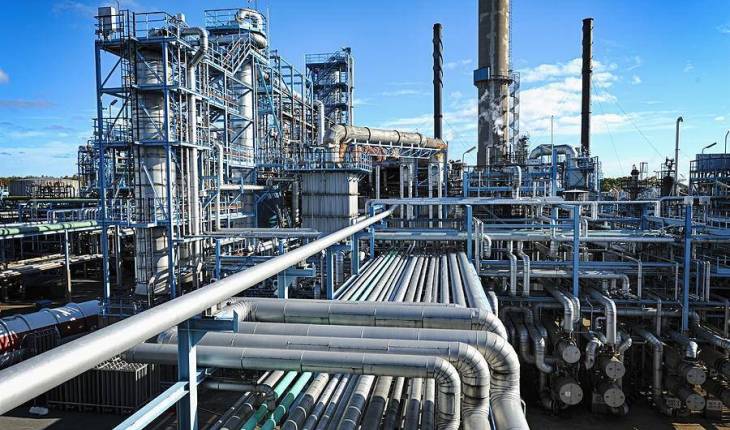The Federal Government through the Nigerian Content Development and Monitoring Board (NCDMB) stated that the rehabilitation of the Nigerian National Petroleum Corporation (NNPC) refineries in Warri, Port Harcourt, and Kaduna will generate a minimum of 400,000 barrels per day.
The production represents a minimum of 90 percent of the installed capacity of the four refineries, according to NCDMB.
Executive Secretary of the board, Simbi Wabote, said the rejig effort is part of the refining roadmap of President Muhammadu Buhari. This, he said includes four focus areas such as the rehabilitation of the existing four national refineries, co-location of new refineries, construction of greenfield refineries and construction of modular refineries.
With that, he said the nation’s combined refining capacity will rise to over 1.4 million bpd in the next five years.
Speaking at the Nigerian Continent Midstream-Downstream Oil and Gas summit in Lagos, Wabote noted that there is a chance to maximize opportunities in the midstream and downstream sectors of the oil and gas industry.
He explained that the employment factor in the midstream and downstream sectors of the industry is higher in number and of longer duration when compared to that of the upstream sector.
“This provides means to absorb outputs of our Human Capacity Development programs in the form of job opportunities. The entry barrier for businesses to partake in the midstream and downstream sectors of the industry is relatively lower compared to that of the upstream sector,” he stated on the employment opportunities lurking in the industry,” Wabote continued.
“There are vast business opportunities in the midstream to downstream sectors ranging from processing, transportation, storage, and distribution that could be started on a small scale and later scaled up to bigger enterprises thereby growing in-country capacities and capabilities.”
He noted that the direct social impact brought by a productive and efficient midstream and downstream sector of the oil and gas industry is another potential that needs to be maximized.
“There is a sense of pride for any citizen who has the confidence that he or she could take availability of energy sources for granted in whatever form such as electricity, fuels, gas, and others. These have direct correlation to quality of life, productivity, life expectancy, and social harmony,” he added.
He further stated that NCDMB is in partnership with NNPC to construct a 50,000 liters petroleum products terminal in Brass Island to support the storage and distribution of white products in the coastal states of the country.
The theme of the summit tagged ‘‘Towards maximizing potentials in the Midstream and Downstream Oil & Gas Sector – A Local Content Perspective,’’ is based on its 10-year strategic roadmap to achieve 70 per cent Nigerian Content target in the oil and gas industry by the year 2027.

 Forex3 weeks ago
Forex3 weeks ago


 Naira2 weeks ago
Naira2 weeks ago
 Billionaire Watch2 weeks ago
Billionaire Watch2 weeks ago




 Naira2 weeks ago
Naira2 weeks ago




 Naira4 weeks ago
Naira4 weeks ago




 Naira2 weeks ago
Naira2 weeks ago


 Naira1 week ago
Naira1 week ago
 Banking Sector4 weeks ago
Banking Sector4 weeks ago





















